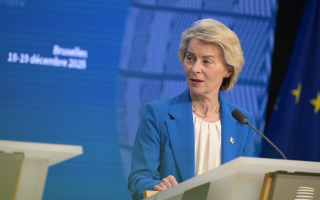GCHQ Chief Criticises Web Firms as Being "In Denial" on Terrorism
The new GCHQ head has accused web firms of being "in denial" over the role their networks play in helping terrorism and made demands they open themselves up more to intelligence services.
Robert Hannigan said they had become "command and control networks of choice" for web savvy extremists. He argued that security and intelligence agencies need better arrangements to police the web and monitor traffic. He warned social media firms that their users didn't want their networks to be used to facilitate murder or child abuse. He wrote the comments in an article for the Financial Times.
"GCHQ and its sister agencies, MI5 and the Secret Intelligence Service, cannot tackle these challenges at scale without greater support from the private sector, including the largest US technology companies which dominate the web," he wrote.
State surveillance has been an issue in the public spotlight for a long time since the exposure of agency methods from US whistleblower Edward Snowden.
Mr Hannigan conceded that GCHQ had to "show how we are accountable for the data we use to protect people" and was "happy to be part of a mature debate on privacy in the digital age.
"But privacy has never been an absolute right and the debate about this should not become a reason for postponing urgent and difficult decisions."
Smartphone and other mobile technology had "increased the options available exponentially" to conceal terrorist activity, he said, including applications "proudly advertising that they are 'Snowden approved'."
Emma Carr, director of Big Brother Watch, said: "It is wholly wrong to state that internet companies are failing to assist in investigations.
"The Government and agencies have consistently failed to provide evidence that internet companies are being actively obstructive. These companies have consistently proved through their own transparency reports that they help the intelligence agencies when it is appropriate for them to do so, which is in the vast majority of cases.
Public debate on this issue would make the country stronger and more unified, yet we have so far failed to achieve this in the UK. Perpetuating falsehoods about the nature of relations between internet companies and the intelligence agencies is certainly not going to help."









